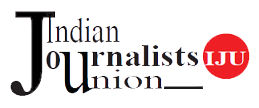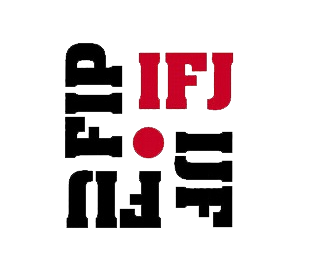- Geetartha Pathak
Restriction on internet access is not new in Kashmir, but this time the state government has blocked as many as 22 social media sites that include Facebook, Twitter, Whatsapp, Skype etc. 3G and 4G mobile services are already banned in the valley. The government's move to ban the social media sites comes after widespread student protest across the campuses rocked the Valley and spread of criticism against the armed forces for using a civilian as human shield by tying him in front of an army vehicle.
In an age of information highway blocking certain site may temporarily cause inconvenience to the enraged youths to vent out their anger in an aggressive way or to those separatist elements who want to incite the youths of the valley against India, but soon they will find out other digital communicative tools to serve their purposes. Now the moot question is whether blocking of information flow is a solution to the problem? Did rumours not make the rounds before invention of internet and digital platform? We know people who believe in rumour hardly verify it.
Rumours are offshoot of plugged conduit of expression and it generally does more harm than unfettered flow of information. Digital platforms reflect the mood of the people of a country. A democratic government can use these tools to gauge the trends in public and can take action accordingly. Blocking social media deprives the authorities of the feedbacks from the people. Blocking media outlets also make it harder to disseminate important information to the people, especially of far flung areas.
Social media and other digital platforms are transforming politics around the world. They helped people and the oppositions to drive the dictators out from power in Tunisia, Egypt and Libya. The Arab Spring protesters have used communication technology to organize massive demonstrations against government policies and at the same time their actions influence people of Greece, Spain, Israel and even India to fight against government policies as well as corruptions at high places. These are effective digital tools of the people in subverting despotic regimes and also elected leaders who are corrupt and indifferent to the interests of the common people.
These events can be seen as signs of an energized power of the people that may reshape world politics. The improved communication technology may increase the leverage of activists pressing democratic governments to be more responsive to people's needs. However there is always a flip side of every new development. Atomic energy can be used by human being for rapid progress of the society and at the same time it can be used as a weapon of mass destruction. The same is true with emerging communication technology. The improved communication technology may increase the leverage of activists pressing the democratic governments to be more responsive to people's needs.
While in some countries the governments are denying access to selected social media platform to the people, the same regimes are extensively using these digital communicative tools to mislead people by spreading fake news, distorted facts and false propaganda to suite their agenda and to blow down the dissidents.
Social media platforms are being widely criticized for influencing the outcomes of the US presidential election and Brexit referendum by allowing fake news, misinformation campaigns and hate speech to spread. Some of the widely used social media like Facebook and Twitter have failed to focus information and data the democracy desperately needs in real time.
The social media companies had shown indifference in feeding the civil society groups, media persons, pollsters, politicians and people in general with right information and statistics which led them to make bad projection and take poor decisions. With emergence of powerful social media platforms across the world, banning digital platforms for preventing criticism of government's action is a universal tendency of the ruling classes. Our neighbouring country Pakistan has long history of on and off social media ban since 2008 mainly to take action against blasphemy about which the Pakistan authorities are hypersensitive.
China has blocked Google, Facebook, Youtube and 3000 websites since September 2015 in Mainland China (excluding Hong Kong and Macau). Apart from China, Bangladesh, Ethiopia and Nigeria are among the few prominent countries that blocked social media and other digital platform for socio political reasons.
Social media as well as the conventional media are under tremendous pressure in the world's oldest democracy United States of America now led by Donald Trump. The Environmental Protection Agency (EPA) and the Department of Agriculture (USDA) have been placed under de facto gag orders by the Trump administration. Trump has banned EPA employees from providing updates on social media or to reporters and barred them from awarding new contracts or grants as well. Trump is reportedly planning massive cuts and rollbacks for the agency. US President Donald Trump may have attracted wide criticism for his controversial actions, but he is managing social media very well. His often outrageous tweets have earned him more than seven million followers on Twitter. And most messages are seen by millions more because they are forwarded thousands of times and get extensive coverage in mainstream media.
The same may be said of Prime Minister of India, Narendra Modi whose social media accounts have huge number of followers. A round the clock active digital army of Hindu radical organizations and their political masters extensively are using digital and even conventional media platforms for spreading propaganda and hate messages against minority religious groups. They have projected the entire population of Kashmir valley as terrorists and supporters of Pakistan through doctored video clips and other publicity materials.
Why the protesters, particularly the students are pelting stones at the Indian army and not using modern assault guns if they are being funded by the enemies of India? The situation is exploited by the terrorists or anti-India forces. The general people are not involved in killing of Indian army in the valley. However the aggressive Indian army empowered by Armed Forces (Special Power) Act or AFSPA has so far killed hundreds of civilians and blinded more than five hundred people mostly children by using pellet guns since last 8 months in the valley. A section of media have aired emotional interviews of slain soldiers' family members immediately after incidents of attacks on the Indian army that have happened in Kashmir valley. Some family members of slain soldiers are vowing live on the screen for fifty heads of Kashmiris against each slain Indian soldier.
However, this section of media outlets is not showing the agony of slain civilians or pellet blinded children of Kashmir valley with same vein. The biased coverage is conspicuous in these media platforms. The civil right activists and people who are more concerned for meaningful democracy where information flows freely and transparency shapes the polity should counter the fake news and propaganda spread in the digital media platforms and other communication tools by dishonest political classes and their radical patrons. The domain of digital media platforms should not be left for powerful political classes, radical disruptive forces and terrorists for fulfilment of their vested interests.
Social media has given the voiceless an opportunity to vent out their discontentment or ire against the establishments and express freely their opinion. If the digital media platforms can be effectively used by the masses instead of handful of powerful people, the democracy in the world will come out of the present setback.




